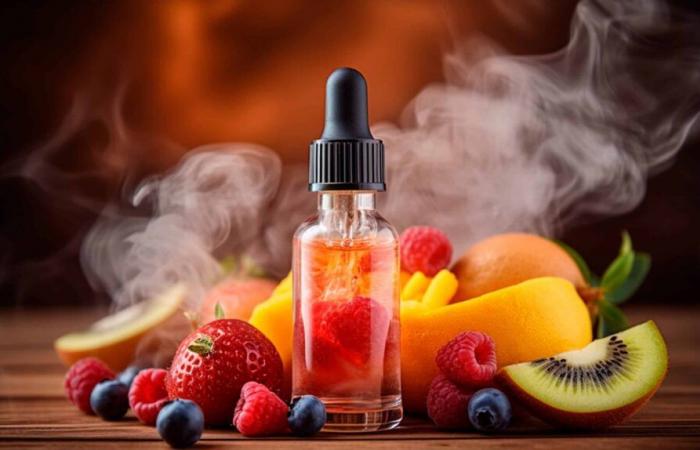The Hague court ruled that the Dutch state was entitled to ban flavorings in e-cigarettes in order to protect public health. The court made the ruling as part of substantive proceedings brought by tobacco manufacturer British American Tobacco (BAT) and related company Nicoventures who considered the ban illegal. [1]-[2].
Banning flavors, a measure to achieve a tobacco-free generation
In June 2020, the then Secretary of State for Health, Welfare and Sport announced a ban on flavors for e-cigarettes. This means that no flavors other than certain types of tobacco flavors can be added to e-cigarettes. This measure was necessary, according to the government, because of new knowledge about the harm, the degree of dependence and the attractiveness of these products for young people. According to the state, it is increasingly clear that young people are particularly attracted to aromas – most often sweet. According to the Dutch State, there are strong indications that sweet flavors would be a springboard towards the consumption of traditional cigarettes. According to the state, the ban on flavors is in line with the goal of a tobacco-free generation set for 2040. Since January 1, 2024, the Netherlands Food and Consumer Product Safety Authority has enforced the ban on aromas.
The public health institute RIVM then established a list of 16 ingredients that manufacturers can use to make tobacco flavors. According to the RIVM, around a quarter of current tobacco flavors can be made with this list of ingredients[3].
An illegal ban according to cigarette maker British American Tobacco
British American Tobacco (BAT) and its subsidiary Nicoventures had brought action against the State considering that by imposing the ban on flavors for vaping products, the State violated the principle of the free movement of goods within the EU and that this decision is not justified. According to BAT, the state has not sufficiently demonstrated scientifically that banning the flavors would serve public health. According to the tobacco company, this measure could on the contrary encourage former smokers who currently vape to return to tobacco consumption, or even dissuade current smokers from switching to vaping. Furthermore, according to BAT, it would be impossible to manufacture e-cigarettes (with a tobacco flavor) with the 16 authorized liquids. Therefore, according to BAT, the flavor ban effectively amounted to a complete ban on vaping devices.
A justified and necessary ban to protect public health
The court ruled that the flavor ban was not illegal. The harmfulness of e-cigarettes and the attractive effect of sweet flavors on young people have been sufficiently established to justify the ban on flavors. The court recalled the goal that the country has set to achieve a tobacco-free generation by 2040. In addition, the argument put forward by BAT according to which the ban on flavors would penalize former smokers who are currently vapers n does not have “enough weight”, adding that the State has a “margin of political appreciation to give more weight to the interests of youth and a future tobacco-free generation in the context of public health”.
The Court specifies that not all vaping devices are prohibited and that other manufacturers have succeeded in creating tobacco flavors with authorized ingredients. For the Court, smokers who wish to quit smoking by opting for an e-cigarette can therefore continue to do so even if the ban on flavors is in force.
The Court accepts that the ban on flavors infringes the free movement of goods but that this affects e-cigarettes in the same way whatever their origin and moreover the decision is justified for reasons of protection of the public health. The harmfulness of e-cigarettes is sufficiently established. Only the degree of harmfulness is still the subject of scientific debate, adds the Court. Additionally, the World Health Organization recommends banning flavors to reduce youth use of e-cigarettes. The measure is thus “appropriate, necessary and proportionate” by the Dutch Court.
The ban on flavors other than tobacco flavoring for vaping and nicotine products is a measure applied by more and more countries, with a view to protecting youth and achieving a tobacco-free generation. In France, the National Committee Against Smoking (CNCT) is calling for a ban on all flavors with the exception of tobacco flavoring.
©Tobacco Free Generation
AE
[1] State allowed to introduce flavor ban for e-cigarettes, Judiciary, published on November 6, 2024, consulted on November 7, 2024
[2] Dutch court upholds e-cigarette flavor ban, RFI, published on November 6, 2024, accessed on November 7, 2024
[3] Tobacco-free generation, Netherlands bans flavors in vaping products, published December 6, 2022, accessed November 7, 2024
National Committee Against Smoking |






